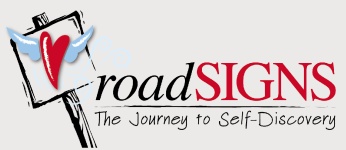I was listening to author Carol Graham, Happiness Around the World – The Paradox of Happy Peasants and Miserable Millionaires, being interviewed on CBC. My husband Jim and I were traveling to Ottawa where I was to deliver a talk. Part of my preparation prior to giving any presentation is listening. That may be inwardly, to my own quiet voice, or outwardly, to whatever voices appear in my immediate environment. Whatever appears is a roadSIGN and this particular interview had a bearing on what I was about to present as Graham discussed happiness.
There were few surprises as she expanded on the notion of happy peasants and miserable millionaires; money, it seems, does not assure us happiness. Despite this, we in western societies are on the ‘hedonic treadmill’ pursuing our belief that the more we acquire the happier we will be. This of course is a fallacy and as Graham’s research revealed, many of the poorest people on earth, leading simple and uncomplicated lives, experience happiness in ways we can only dream about.
In measuring happiness over the adult life span, beginning at age 18 and upward, Graham also identified a ‘U’ curve. Happiness tends to be at its lowest point between the ages of forty-two and fifty. Is this what we in western cultures have for so long labeled as the mid-life crisis? Is this the big ‘U’ in YOU?
I thought Graham’s research to be very interesting. As a coach I have certainly identified this mid-life anxt among my clients, although not always limited to this specific age group. It is, in my view, a critical time in both our personal lives and careers, a time where typically one sits back and takes a look at what one has accomplished and what is coming next. By the age of forty, most of us have 15 to 20 solid years of work experience behind us and, if you have traveled a similar path to me, you begin to assess what it is you really want to achieve through your work. You might even ask the question what is my work, what do I believe I am here to do? How am I being asked to serve? What is my ‘WHY’, the meaning behind my choices? Am I making a difference?
I believe that your JOB may or may not be your work. Let me illustrate this with a story. A friend of mine and fellow writer, Dawna, experienced a serious form of cancer in her mid-thirties. She was hospitalized for an extended period of time receiving chemotherapy and other cancer treatments. She was very sick and during that time admits to losing her sense of who she was. Her illness simply took over her thoughts.
Dawna admits that the most difficult time of each day was after 8:00 p.m. when visiting hours ended and she lay awake in her bed, alone with her thoughts. Every evening however, she would have a visitor. As the darkness settled around her, she would hear the sound of the mop coming down the hallway, its familiar swooshing sound approaching her room as the evening janitor cleaned the hallways of the day’s accumulated dust. As this night worker approached her room, the mop handle would click against the wall just outside her room and this person would glide into her room. She would sit beside Dawna’s bed, take her hand and whisper to her, “Dawna you are bigger than cancer; Dawna, you are bigger than your illness. Dawna you have much more to give this world, focus on this”. After a few moments of sitting with Dawna, the person would rise and leave her room. The swooshing sound of the mop would resume and disappear down the hall.
Throughout Dawna’s journey, this woman visited her. Dawna did heal and she eventually left the hospital. She did not know the woman’s name and in fact had never seen her face, for they always met in the dark. As you consider this story, you will recognize that this woman’s JOB was to be a janitor. Her work however, was to be a healer. While her JOB gave her the avenue to pursue her work in the world, she had many choices as to how she approached her job.
The ‘U’ in YOU, that time when you happiness wanes, is an opportunity. Rather than judging it, why not use the time as a signal for checking in with yourself and asking those critical questions about meaning and how you are experiencing life.
Imagine for a moment that you are a pebble. You are thrown into a smooth, glassy surface of water. The moment you and the water connect, you create a ripple effect and those ripples continue to expand affecting life around you. The ripples represent your choices, how you engage in life and the world around you.
As you reflect on the ripple you want to create, here are the three critical questions to examine:
1) How do I choose to live in the world? What are my core values?
2) What do I choose to do in the world? What is my work, my call to service?
3) Who do I choose to ‘be’ in the world? What makes me tick?
Let these be your roadSIGNS.
By the way, according to Graham’s research, the happiest people are healthy and in stable relationships. Happy people live longer, enjoy life, are politically active, believe in God or a higher power, and have friends and family they can rely on. Interesting how none of these attributes are directly connected to ‘material goods’.
Until next time….
Betty
